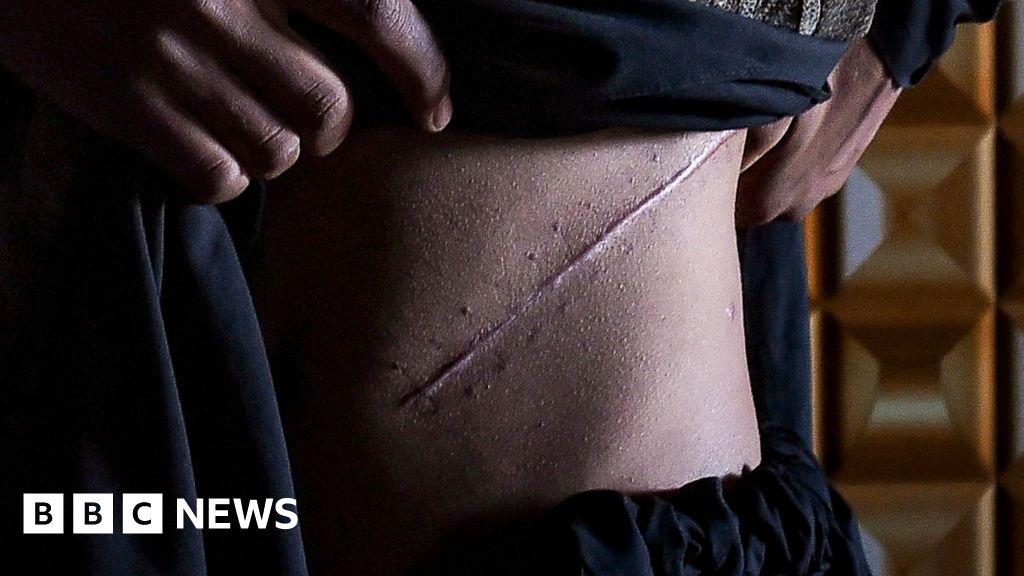Austria election results: Far-right FPO wins, what’s next? | Elections News
Austria’s far-right Freedom Party (FPO) has emerged victorious after the country’s parliamentary election on Sunday.
Here’s what comes next.
What were the results of the Austria election?
According to a projection based on the count of nearly all the votes by pollster Foresight for Austrian public broadcaster ORF:
- The FPO won 28.8 percent of the vote.
- The conservative Austrian People’s Party (OVP) is in second place with 26.3 percent votes. The OVP has been in a governing coalition with the Green Party.
- The centre-left Social Democrats (SPO) won 21.1 percent of the vote.
What does the FPO need to form the government?
While the FPO won the most votes, it did not win with a large enough margin to govern alone.
To form the government, a party requires a minimum of 92 out of 183 seats in the parliament, a number that Herbert Kickl’s FPO falls short of.
So the FPO “can only form a government if it enters a coalition with at least one other party”, Dorit Geva, a professor at the University of Vienna, told Al Jazeera.
Will the OVP form a coalition government with the FPO?
Most parties in Austria have refused to join hands with the FPO. The OVP, on the other hand, has been more nuanced in response to the question of whether it might back the FPO in government.
During the election campaign, OVP leader and Austrian Chancellor Karl Nehammer said the party would not support the FPO if the far-right party insisted on making its leader, Herbert Kickl, the chancellor.
However, Nehammer never refused to enter into a coalition with the FPO, Geva said, adding that there is a “reasonable chance” the two parties could become coalition partners, though likely without Kickl as the head of the government.
“A more likely scenario is a coalition between FPO and OVP; an OVP chancellor; and with key ministerial positions being given to the FPO,” Geva said.
She compared what is currently happening in Austria with what unfolded during the Dutch election in November 2023. Dutch centre-right parties agreed to enter a coalition with Geert Wilders’s far-right Party for Freedom (PVV) after the election, but on condition that Wilders would not become prime minister.
Dutch parties reached a deal to form a coalition government six months later in May 2024 after Wilders reluctantly agreed to the condition.
If the OVP does not form a coalition with the FPO, and instead forms one with the SPO, it will face a backlash for not respecting election results, said Katalin Miklossy, University of Helsinki lecturer in Eastern European studies.
An OVP-SPO “coalition won’t last, and then Austria runs into a kind of early elections, and then the FPO will win bigger time,” Miklossy told Al Jazeera.
“I think it is now perhaps the wise thing to do is to let them into the government”.
Both right-wing parties, the FPO and the OVP, have some ideological overlap, especially when it comes to wanting stricter immigration rules. Both parties also favour tax cuts. But they differ on other issues.
Miklossy said she expects the FPO to soften and possibly lose support in a coalition government. “They will soften because they need a kind of compromise with the coalition party”.
What is the FPO’s position on key issues?
- Immigration: The FPO says in its manifesto that it wants to deport immigrants who have entered Austria illegally. It also wants to cut down on asylum approvals, admitting fewer migrants into the country. Additionally, it wants to prevent asylum from becoming a pathway to Austrian citizenship, to make asylum temporary and to force refugees to return to their country of origin once it is deemed safe to do so. It wants social benefits to be reserved for native Austrians. It rejects the European Union’s pact on immigration, which calls for having a common asylum system at the EU level. The OVP, with which the FPO might need to partner, has also sought tougher rules against immigrants.
- Russia-Ukraine war: The FPO has long been critical of the EU. It opposes sanctions against Russia and sending further aid to Ukraine. It advocates for Austrian neutrality with regard to the war and wants to continue using Russian gas supplies to avoid price hikes. However, the current OVP-Greens coalition was attempting to move the country away from its use of Russian energy — in July, Austria sourced 83 percent of its imported gas from Russia. Under the OVP, Austria had also supported sanctions against Russia over its invasion of Ukraine. The OVP, unlike the FPO, is also supportive of the EU. The FPO’s Euroscepticism and its position on Russia could prove to be major niggles for any alliance with the OVP.
- Health: For Austrian voters, health was an issue of high priority. The FPO is staunchly against vaccines. Kickl described the COVID-19 vaccines as “a genetic engineering experiment”. In fact, Kickl’s lawyer sought a court injunction in 2021 against a PR strategist who had amplified a rumour that Kickl had been vaccinated against COVID-19 — something the FPO leader denied. Vaccines are another area where the FPO and the OVP disagree. Under the OVP-led government, Austria offers free COVID-19 vaccines, and in 2022, briefly became the first European country to make shots mandatory, before walking back that diktat following protests.
Has the FPO been in government before?
Formed in 1956, the FPO is one of Europe’s oldest functioning far-right parties and has been in government twice before.
In the 1999 general election, the FPO won with 27 percent of the vote and entered a coalition government with the OVP. Jorg Haider, the leader of the FPO back then, was not chancellor during the coalition government between 2000 and 2005. Instead, Wolfgang Schussel of the OVP was chancellor.
In the 2017 legislative election, the FPO won 26 percent of the vote and entered a coalition government with the OVP again. The coalition fell apart in 2019 after a scandal called Ibiza-gate, when a hidden-camera video of 2017 showed two FPO leaders offering government contracts to a woman in the Spanish island of Ibiza . The woman was understood to be the daughter of a Russian businessman.
Is the FPO’s win part of a broader far-right surge in Europe?
The FPO’s win is one of many recent far-right wins in Europe.
Germany’s far-right Alternative for Germany (AfD) won the state election in Thuringia earlier this month, and came second in the state of Saxony. It is the first time that a far-right party has won a state election in Germany since World War II.
Geva explained that while Austria is a small country, not as central to the EU project as France, Germany, or Italy, “it has long functioned as the bridge between West and Central/East Europe”.
She added that the FPO’s success in Austria will “serve to further legitimise Viktor Orban’s vision for the future of Europe, which means limiting the power of Brussels, securitising European borders against migration, and is certainly bad news for Ukraine”.
Orban has been Hungary’s prime minister since 2010 and is the head of the right-wing populist Fidesz party in the country. Orban has been criticised for being illiberal and authoritarian. Also close to Russian President Vladimir Putin, Orban does not support Ukraine’s victory.
Check out our Latest News and Follow us at Facebook
Original Source







